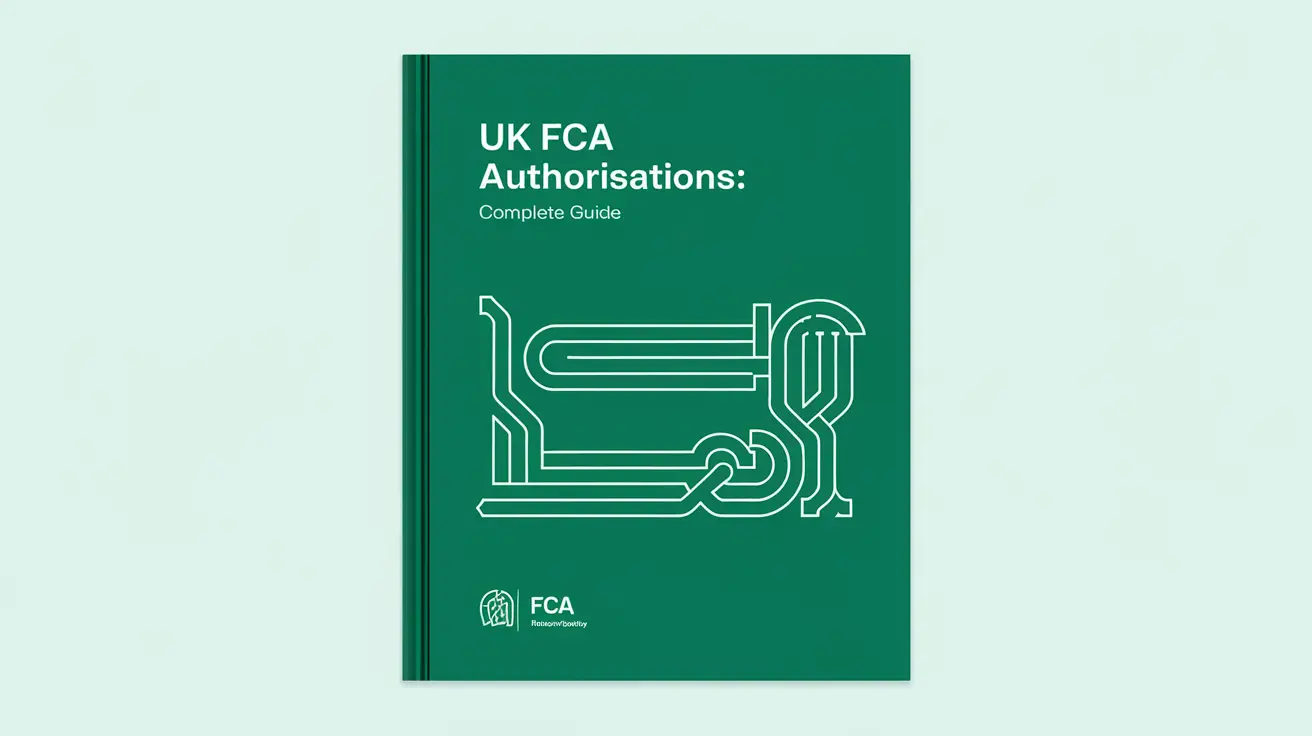
Understanding FCA Authorisation and Its Significance
The Financial Conduct Authority (FCA) plays a pivotal role in maintaining the integrity of the UK’s financial ecosystem. As a regulatory body, it ensures that businesses operating in the financial sector adhere to strict standards designed to protect consumers, encourage competition, and enforce ethical practices. Businesses that engage in certain financial activities, whether directly or indirectly, are typically required to obtain FCA authorisation before they can legally provide their services to customers. Failure to comply with these requirements can lead to significant penalties, reputational damage, and even shutdowns.
Navigating the scope of FCA-regulated activities can be tricky, especially given ongoing regulatory updates. This article provides a comprehensive overview of businesses that need FCA authorisation, the specific activities that fall within its remit, and the steps businesses must take to gain compliance. Moreover, we address frequently asked questions about who needs to register and what FCA authorisation entails. If you’re building or already operating in the UK financial industry, this guide is essential reading.
What Is FCA Authorisation?
At its core, FCA authorisation is a legal seal of approval for businesses performing regulated activities in the UK’s financial sector. It confirms that a firm meets the FCA’s stringent requirements for competence, honesty, and consumer protection. Being authorised isn’t just about compliance; it’s about showcasing trustworthiness to clients and other stakeholders.
The FCA’s authority spans numerous financial sectors, from banking and insurance to investment firms and even peer-to-peer lending platforms. Without proper authorisation, any unauthorised firm conducting regulated activities faces severe fines or criminal prosecution.
Why FCA Authorisation Matters for Businesses
- Compliance with the Law: Operating without authorisation breaches the Financial Services and Markets Act 2000 (FSMA).
- Building Trust: FCA-authorised firms enjoy enhanced credibility with customers, as compliance signals protection against unscrupulous practices.
- Market Accessibility: Financial institutions, lenders, fintech startups, or insurance firms often require FCA approval to access partnerships, investments, or even advertise their offerings legally.
Which Businesses Require FCA Authorisation? 
Not every company in the financial sector requires FCA authorisation; it depends on the specific activities they conduct. Below is a detailed breakdown of business types and roles that often require authorisation.
- Lending and Credit Companies
Any company offering loans, credit agreements, or related consumer finance services must be FCA-authorised. This extends to:
- Personal loan providers
- Payday lenders
- Car finance companies
- Mortgage firms
- Credit card providers
- Investment Firms
If your business provides financial advice or manages investments, chances are you’ll need FCA authorisation. This category is broad, including:
- Asset management firms
- Hedge funds
- Wealth management services
- Independent financial advisers (IFAs)
- Insurance Providers and Brokers
The insurance industry is heavily regulated in the UK. Businesses that sell, advise on, or administrate insurance policies—whether directly as insurers or brokers—require appropriate authorisation. Examples include:
- General insurers (e.g., home or car insurance providers)
- Reinsurance firms
- Insurance intermediaries/brokers
- Payment Services and E-Money Providers
With the rise of digital wallets, online payments, and mobile banking applications, the FCA’s oversight has expanded into payment services. Examples include:
- E-money institutions such as fintech providers
- Payment gateway providers
- Prepaid card issuers
- Peer-to-Peer (P2P) Lending Platforms
If your business facilitates loans between individuals via a platform, you’ll need FCA authorisation. The peer-to-peer lending market has grown substantially in recent years, making this a key focus for regulation.
- Debt Management and Collection Agencies
These businesses interact with individuals struggling with debt. FCA oversight ensures they operate fairly and provide ethical solutions. This includes:
- Debt counselling services
- Credit rating improvement providers
- Debt purchase and collection agencies
- Cryptocurrency Exchanges and Custody Providers
Since the FCA broadened its scope to include digital assets, businesses involved in cryptocurrency exchanges or custody must comply. If you facilitate crypto trading or hold users’ digital assets, registration is mandatory to meet anti-money laundering (AML) and other requirements.
- Consumer Hire Firms
If your firm allows customers to hire goods or services under a regulated hire agreement, FCA regulation is necessary. Examples include car hire and equipment rental firms with flexible financing options.
How to Determine Whether Your Business Needs FCA Authorisation
Many businesses are unsure whether their activities warrant FCA authorisation. The FCA has a clear list of regulated activities under Part 4A of FSMA, including:
- Accepting deposits
- Dealing in investments as principal or agent
- Managing investments
- Advising on regulated products (e.g. mortgages, pensions)
- Lending and credit brokering
- Operating electronic money instruments
If your business falls into any of these categories, authorisation is likely required.
Exemptions to FCA Authorisation
Some firms may fall under exemptions if they operate under an appointed representative agreement with an already authorised firm. This allows them to perform regulated activities indirectly, provided strict FCA guidelines are followed.
Steps to Apply for FCA Authorisation
- Understand Your Business Activities: Identify the specific legal authorisations needed based on your firm’s operations.
- Complete the Application Form: Submit a carefully prepared form via the FCA’s Connect platform.
- Prepare Supporting Documents: These typically include a business model, compliance strategy, and proof of financial capacity.
- Meet Threshold Conditions: These are the FCA’s baseline requirements covering integrity, competence, location, and capital.
- Pay Applicable Fees: Authorisation fees vary depending on business type and complexity of activities.
 Key Challenges in Securing FCA Authorisation
Key Challenges in Securing FCA Authorisation
- Lengthy processing times: Applications can take 6-12 months for approval.
- Strict scrutiny: The FCA reviews every detail, from business models to senior management qualifications.
- Cost implications: Application and compliance costs can be prohibitive for startups.
Despite these challenges, obtaining FCA authorisation is crucial for businesses seeking long-term success in the financial sector.
FAQs About Businesses Requiring FCA Authorisation
- Which sectors are most regulated by the FCA?
Sectors such as banking, insurance, investments, and emerging fintech are heavily regulated. - What happens if a business operates without FCA authorisation?
Firms conducting regulated activities without approval face hefty fines and possible criminal charges. - Can different branches of the same business require separate FCA authorisations?
In some cases, subsidiaries must apply individually, depending on their operational scope. - How long does the FCA authorisation process take?
It can range from 6 to 12 months, depending on application complexity. - Are cryptocurrency firms regulated by the FCA?
Yes, particularly those involved in exchanges and custody.
To Contact Us
Tel; UK 0800 689 0190,
International +44 207 097 1434
Email: info@complianceconsultant.org
If you’d like us to contact you to discuss your specific situation and how we may be able to help,
please provide your contact details using the form below and a member of our team will get in touch.
You may also be interested in;
🔑 UK FCA Authorisations: Complete Guide
What Does FCA Authorisation Mean for Businesses?
Step-by-Step Guide to FCA Authorisation
Businesses That Require FCA Authorisation in the UK
🔑 FCA Authorisation Process Explained
Documentation Required for FCA Authorisation
Common Challenges During FCA Authorisation Process
How to Prepare a Winning FCA Application
🔑 FCA Approved Persons
How to Apply to Become an FCA Approved Person
The Roles and Responsibilities of FCA Approved Persons
FCA Certification Regime for Approved Persons
🔑 Types of FCA Authorisations
Consumer Credit FCA Authorisation: A Step-by-Step Guide
What FCA Authorisation Means for E-Money Institutions
FCA Authorisation for Payment Services Providers
🔑 FCA Registration Fees & Costs
Small Firms vs Large Firms: FCA Authorisation Fee Breakdown
Understanding Ongoing FCA Compliance Costs
Are There Hidden Costs in the FCA Approval Process?
🔑 FCA Handbook Simplified
What Is the FCA Handbook? A Beginner’s Guide
Key Rules in SYSC (Systems and Controls) Regulations
How to Navigate FCA Conduct of Business Rules (COBS)
🔑 How Long Does FCA Authorisation Take?
Average Processing Times for FCA Applications in 2025
Common Delays in FCA Authorisation Processing
FCA Fast-Track Applications for Critical Business Timelines
🔑 FCA Compliance Monitoring Explained
Creating an FCA Compliance Monitoring Plan
FCA Reporting Obligations by Firm Type
Best FCA Compliance Monitoring Software
🔑 FCA Regulatory Updates for 2025
Major FCA Regulatory Changes You Need to Know in 2025
Preparing Your Business for FCA Regulation Changes in 2025
Simple Guide to Understanding FCA ESG Requirements
🔑 FCA Application Rejections
Common Reasons FCA Applications Get Rejected
How to Appeal an FCA Rejection
How to Successfully Resubmit Your FCA Application
